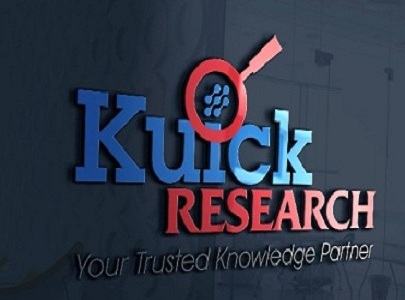
China Bispecific Antibody Market Opportunity and Clinical Trials Insight 2028 Report Highlights:
With a rapid increase in the clinical research and development activities in the recent years, China has developed as one of the biggest pharmaceutical markets in the world. With RandD activities covering various therapeutic areas and diseases, it has also emerged as one of the most popular destinations for holding clinical trials. Learning from their international counterparts, companies in China have shifted their focus from manufacturing generic drugs to the development of innovative drugs and therapies. One of the most recent developments in China’s pharma market was the progress it made in the treatment of cancer – specifically after the introduction of immunotherapy in the targeted cancer research scenario.
Immunotherapy has become one of the most sought after oncology treatments in recent years. China was slow to enter this market but ever since it did, its progress has been massive. Bispecific antibodies are one of the most popular immunotherapies in China, whose development has been riding on the tailcoats of the success and acceptance of monoclonal antibodies in the region. Currently the global bispecific antibodies RandD pipeline is packed with over 800 antibodies in ongoing clinical trials out of which more than 250 clinical trials are being held in China, which enunciates its new-found reputation in the pharma market.
At present, there are 3 bispecific antibodies which have got approval by China’s drug approval authority, the National Medical Products Administration. These are Blincyto, Hemlibra and Cadonilimab. Out of these three, Cadonilimab is the only bispecific antibody which was developed independently and solely by domestic researchers at Akeso which shows China still has a lot to learn seeing its dependence on western companies for the growth of its bispecific antibodies market. On the brighter side, pharma companies in China have started developing their own proprietary technologies which make use of the latest advancements in the applied science sector. YBODYandreg;, CRIBTM, ITabTM, and FIT-Ig are some platforms which have been developed by some Chinese companies, while others like Legend Biotech have theirs under development.
Some of the major players in China’s bispecific antibody market include Biopharma, EpimAb, Alphamab Oncology and BeiGene. BeiGene was granted the license by Amgen to commercialize its FDA-approved Blincyto in the region. The breadth of applications of bispecific antibodies has long expanded beyond the oncology segment. Researchers in China are now testing their effects on autoimmune diseases, as well as inflammatory diseases. Many major pharma companies are now involved in developing these therapies.
The Amgen-BeiGene partnership is just one of innumerable collaborations that are taking place between domestic and western companies which are enabling the growth of China’s bispecific antibody market with the introduction of world-class technologies and the engagement of highly skilled and knowledgeable researchers. With more pharma companies trying to set foot in the Chinese bispecific antibodies market, more companies are signing agreements and partnerships to get access to proprietary platforms, the use of which consequently reduces the resources it would have had to put in the process on its own.
With the government constantly trying to encourage the development of innovative drugs in the country by bringing in new policies and making amendments to already existing regulations, more pharma companies are getting encouraged to enter the immunotherapy market. Some of the incentives include tax exemptions and the setting up of business parks in various major cities to help them grow as centers for pharma companies. The Zhangjiang region of Shanghai already houses research facilities of Novartis, GlaxoSmithKline and Roche which has helped the region to grow as an industrial hub. The government has aptly realized the benefits that come along with western companies and has thus made newer policies for a smoother entry of western companies in the domestic market and an easier approval process for developed drugs that use clinical trial data from other countries. The government’s designation of drugs as breakthrough or priority has substantially shortened the approval time. The entire process takes a little over 3 years in China now compared to 12 in the US.
With multiple factors in play, China’s bispecific antibody market and its immunotherapy markets are undoubtedly expected to grow in the coming years as the number of companies, both local and domestic, trying to enter the nation has increased several folds because of the many possibilities, rich opportunities and favorable incentives in the region’s market, helping China make its place in the largest pharma markets globally.